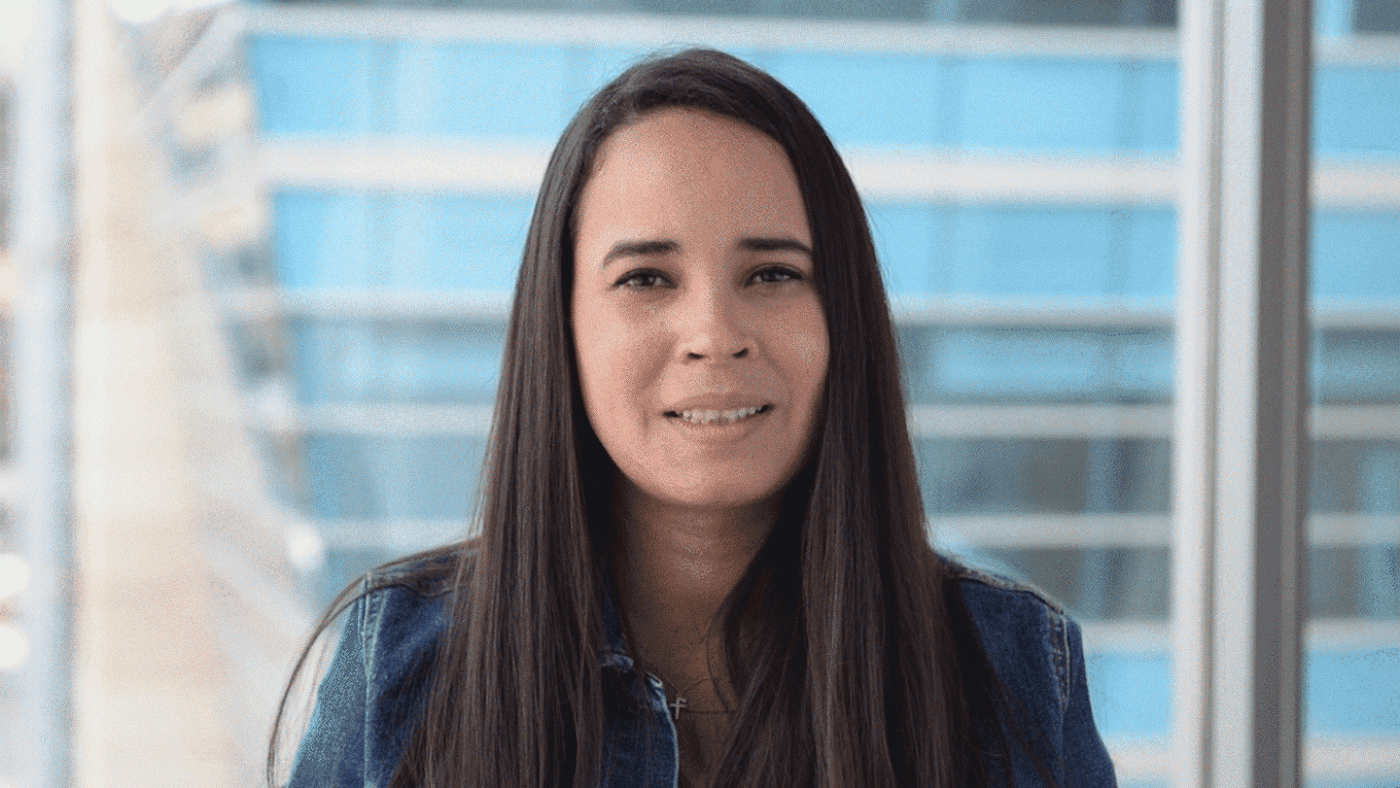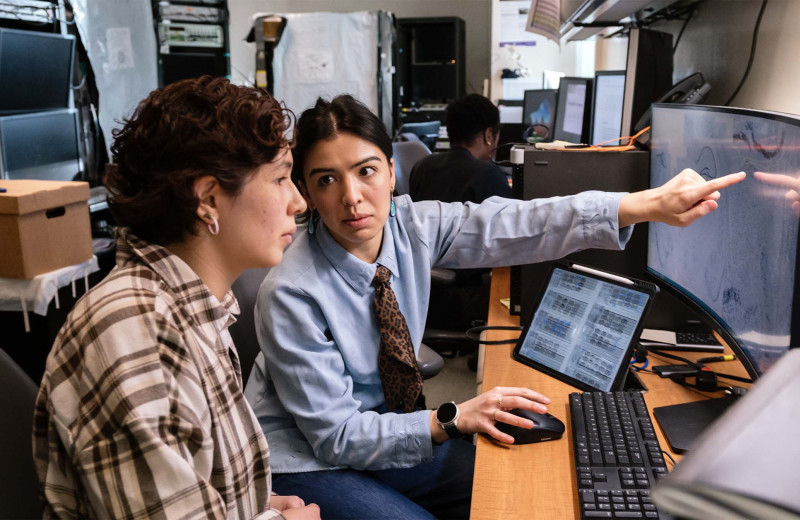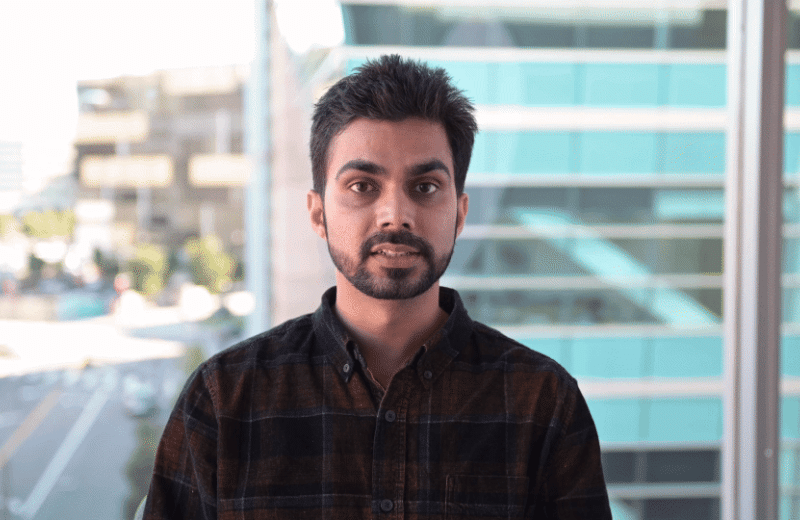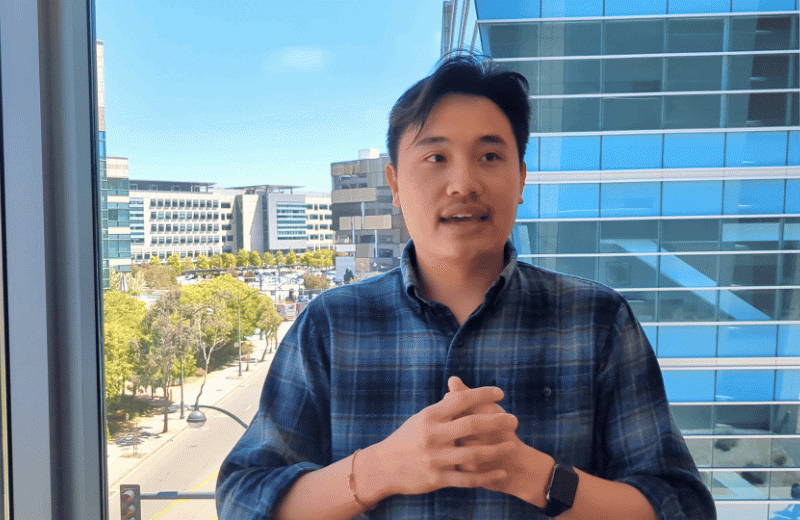Gladstone NOW: The Campaign Join Us on the Journey✕

Rosmely Hernandez discusses her vast orchid collection, her favorite Cuban desserts, and the importance of Latinx representation in the sciences.
Rosmely Hernandez (she/her), PhD, is a new postdoctoral scholar in the laboratory of Alex Marson. She was born in Cuba, where she lived until she moved to the United States at the age of 14. She completed her PhD in microbiology and immunology at the University of Miami Miller School of Medicine. Hernandez is also part of Embark: Gladstone’s Presidential Postdoctoral Program.
What brought you to Gladstone?
I had been following the work of the Marson Lab in genomic immunology for a few years and I knew that after completing my PhD, I wanted to combine my immunology background with genomic tools to design better cancer immunotherapies. The Marson Lab provided me with this opportunity and I’m now fortunate to be part of Gladstone Institutes.
Were you interested in science as a child?
As I was growing up in Cuba, I had an innate interest in my natural surroundings. Plants always fascinated me. However, I did not get to explore science until moving to the US.
What or who influenced your decision to work in science?
My first and most meaningful encounter with science was when my grandfather was diagnosed with Parkinson’s disease. I immediately became interested in understanding the disease process and therapeutic options available. I think this event really sparked my interest in science and influenced my decision to take science-related classes in college.
Why did you decide to go to graduate school?
For my undergraduate degree at the University of North Alabama, I decided to work under the mentorship of Lisa Ann Blankinship, PhD, to test antibiotic resistance in a bacteria called Klebsiella pneumoniae isolated from patient samples at various clinical facilities. The enriching experiences gained during those times in the lab inspired me to apply to graduate school.
Can you describe your current research project?
My project in the Marson Lab focuses on developing more potent T cell therapies for the treatment of patients with cancer. Current T cell therapies lead to an increase in patient survival; however, there’s still room for improvement as the anti-tumor responses are limited by decreased proliferative potential, memory formation, and survival of the adoptively transferred T cells.
During my PhD thesis, I worked on enhancing T cell responses to cancer vaccines using a novel construct of interleukin-2, a cytokine that plays a role in every aspect of T cell biology including expansion, functional maturation, memory development, and survival.
For my project, I will combine the rich toolbox provided by the Marson Lab with my previous background to determine how we can leverage the same molecule to engineer more effective T cell therapies.
What do you do when you are not working?
Is there such a thing as “not working?” Yes, there is! And I have decided to take this very seriously as we must also do other things that we enjoy. When I’m not working, I’m either spending time with my family, reading a good book, staring at every dog I see as I go for walks, and enjoying nature.
Have you developed any fun pandemic hobbies?
When quarantine began, I started collecting orchid plants and at some point had more than 50 different species in my house. Even though I’m a plant lover, I never thought it would get out of control. At first, it was tough as I didn’t have experience growing orchids, but now I can say I’m a pro. Contact me with your orchid questions!
Spending more time at home has also given me the opportunity to read new books and dive into different literary genres other than scientific nonfiction.
If you could learn to do anything, what would it be?
I love my grandma’s Cuban dessert recipes and I really hope that one day I’ll be able to make some delicious arroz con leche, pudín de pan, and buñuelos to share with friends and family.
What is your hidden talent?
I like to think I can sing opera while I’m listening to Andrea Bocelli or Luciano Pavarotti. I think it might be all in my head though.
If you could meet any scientist from any point in time, who would it be and why?
I would love to meet Marie Curie. She was incredibly driven and passionate for science and her work led to major scientific contributions, including the discovery of radioactive elements and the introduction of radiation methods for cancer treatment. She was also the first woman to be awarded a Nobel Prize. She won two Nobel Prizes: one in physics and one in chemistry.
This is my favorite quote from Marie Curie: “You cannot hope to build a better world without improving the individuals. To that end each of us must work for his own improvement, and at the same time share a general responsibility for all humanity, our particular duty being to aid those to whom we think we can be most useful.”
September 15–October 15 is Latinx Heritage Month. Why is representation important in the sciences?
The Latinx population is largely underrepresented in the sciences. For many who leave their country for better job opportunities or for their children, it might seem that pursuing a career in the sciences is unreachable, as this field is often considered to be a difficult one to enter. For me, working in this field means I’m giving hope to the current and future Latinx generations and reaffirms that it is possible to pursue a career that might seem unattainable.
Want to Join the Team?
Our people are our most important asset. We offer a wide array of career opportunities both in our administrative offices and in our labs.
Explore CareersVoices of Outstanding Mentorship
Voices of Outstanding Mentorship
Three recipients of Gladstone’s Outstanding Mentoring Award share their personal approaches to mentorship and reflect how this passion has shaped their own growth as leaders.
Profile Roan Lab Graduate Students and PostdocsMeet Gladstone: Shyam Jinagal
Meet Gladstone: Shyam Jinagal
Shyam Jinagal explores how genetics, aging, and regeneration shape the heart—and how those insights could one day restore heart function after injury.
Graduate Students and Postdocs Profile Cardiovascular Disease Srivastava LabMeet Gladstone: Oscar Yip
Meet Gladstone: Oscar Yip
Oscar Yip is advancing Alzheimer’s research in Yadong Huang’s lab at Gladstone while drawing inspiration from his family, community, and his broader goal of helping patients.
Graduate Students and Postdocs Profile Alzheimer’s Disease



